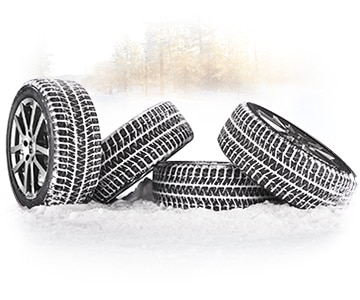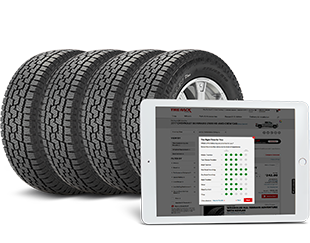-
-
My Account*RequiredORDon't have an account?Get Started Here
- We use the best SSL technology to ensure our site is secure — Norton Security Services.
Create Account*RequiredAlready have an account?Sign In Here- We use the best SSL technology to ensure our site is secure — Norton Security Services.
All Weather Tires
Get reliable traction all year long with our all-weather tires
All-Weather Tires: Built to Keep Drama Out of Your Winter Commute
All-weather tires are one of the fastest-growing segments of the larger touring tire category, and for good reason: each meets or exceeds the tire industry’s standard acceleration test requirements on medium-packed snow, which earns every all-weather tire we stock the coveted 3-Peak Mountain Snowflake (3PMSF) symbol on its sidewall.
This added light- to- moderate snow traction gives all-weather tires a leg up on traditional all-season tires when the snow starts to fall. As the popularity of all-weather tires continues to grow, we’re seeing tire manufacturers continue to test and refine their all-weather tire products to meet the needs of customers.
As this segment grows, Tire Rack remains your best source for the most diverse inventory of all weather tires from the leading tire brands, independent all-weather tire test results and convenient shopping and installation options for every all-weather tire we sell.
Popular All Weather Tires
We keep a steady supply of some of the most popular all weather tires on the market.











